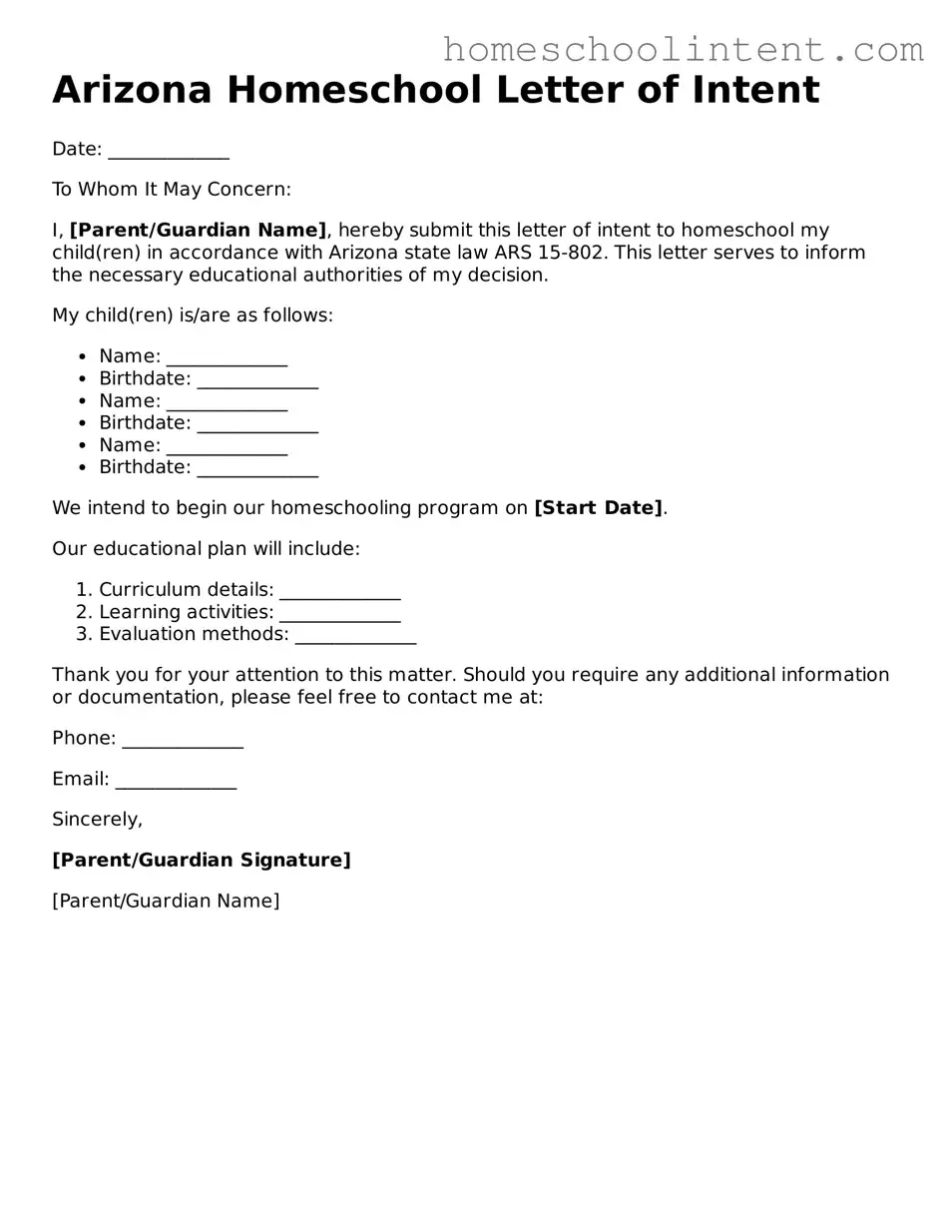Documents used along the form
When parents decide to homeschool their children in Arizona, they often need to complete the Homeschool Letter of Intent form. However, this is just one part of the homeschooling journey. Several other forms and documents can help ensure that the homeschooling experience is organized and compliant with state regulations. Here’s a list of commonly used documents that may accompany the Homeschool Letter of Intent.
- Curriculum Plan: This document outlines the educational materials and methods that will be used throughout the school year. It helps parents stay organized and ensures they cover all necessary subjects.
- Attendance Records: Keeping track of daily attendance is important for accountability. This document shows how many days the child was educated at home, which can be useful for future reference.
- Progress Reports: These reports summarize the child’s academic achievements and areas where they may need improvement. They can be shared with educational authorities if required.
- Assessment Records: Parents may choose to document their child's assessments or standardized test results. This information can provide insight into the child's learning progress.
- Portfolio of Work: A collection of the child's completed assignments, projects, and tests can serve as evidence of their learning. It showcases their progress and achievements over the year.
- Notification of Withdrawal: If the child was previously enrolled in a public or private school, this document formally notifies the school of the withdrawal. It ensures that all administrative processes are followed.
- IEP or 504 Plan (if applicable): For children with special needs, these documents outline specific accommodations and modifications to support their learning. They can guide parents in providing the best educational experience.
Having these documents on hand can make the homeschooling process smoother and more effective. They not only help parents stay organized but also ensure compliance with Arizona's homeschooling laws. As you embark on this educational journey, consider how these forms can assist you in providing a rich learning environment for your child.
